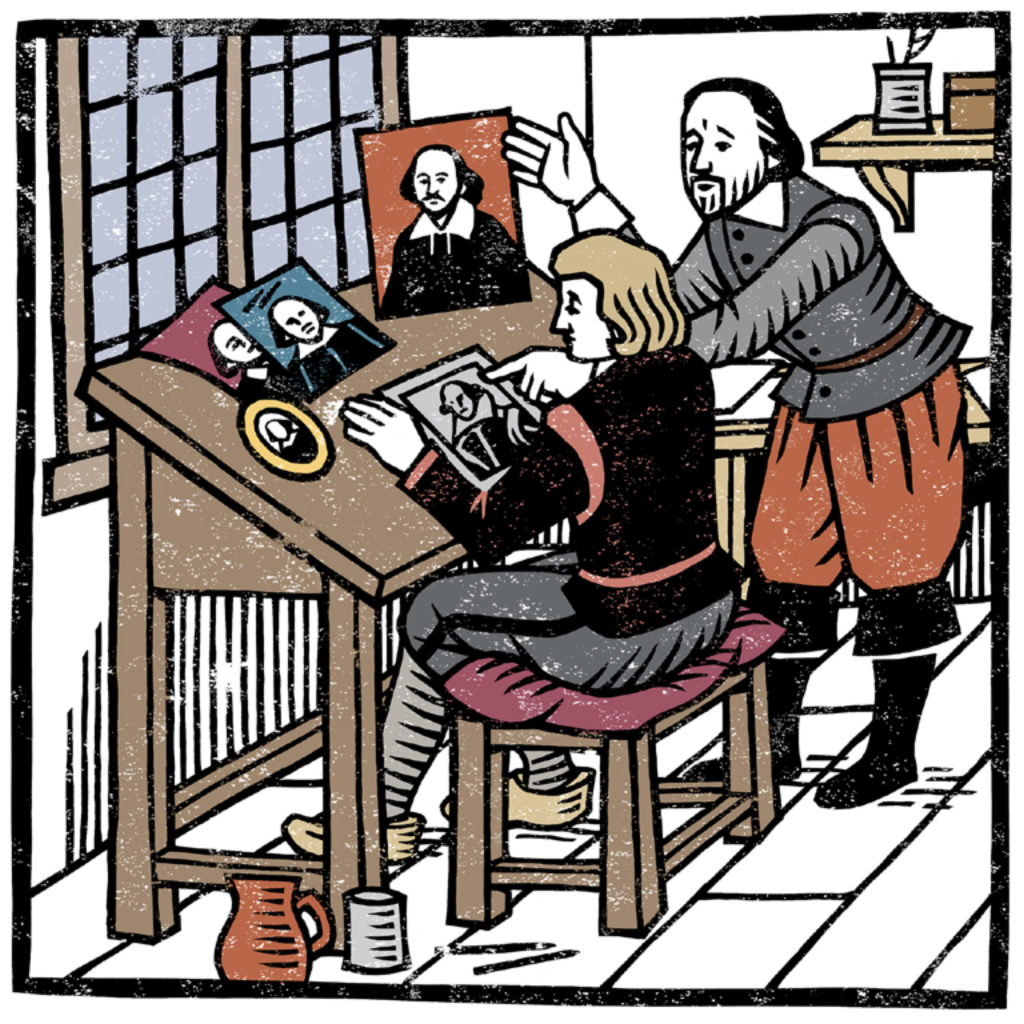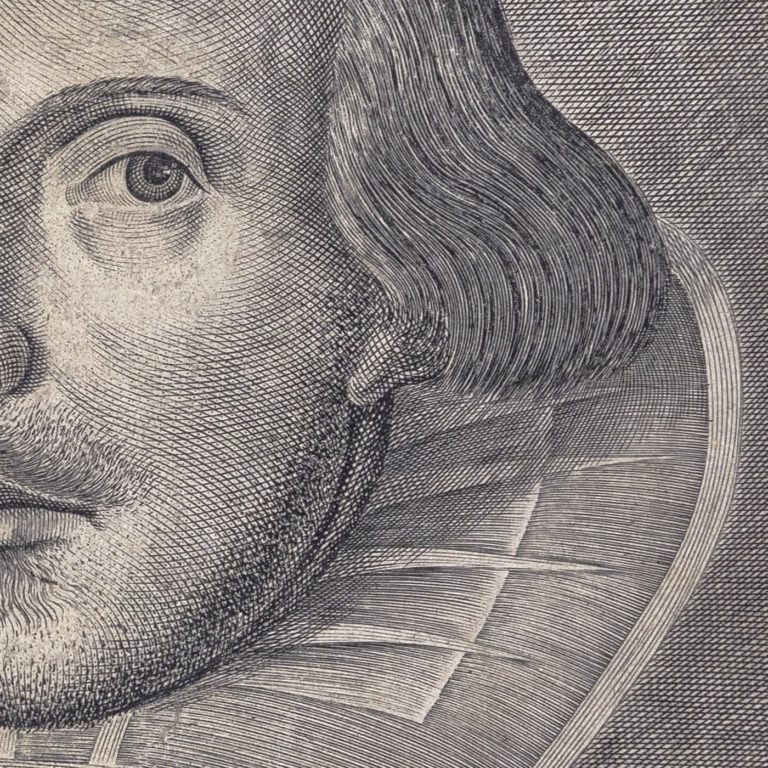
‘looke not on his picture, but his book’
As the printing of the First Folio neared completion, Martin Droeshout rushed to create a portrait of the author, for the book’s title-page.
The young Flemish artist’s engraving has not been hailed as great art, but has become an iconic image.
Remembering his lines
Many pages of the First Folio, such as the beginning and end of each play, have decorations printed at the same time as the text. They were made using carved blocks of wood locked into the forme alongside the metal types. One picture is different: a large portrait of William Shakespeare on the title-page. It is more detailed than the woodcut images, and was made by engraving very fine lines into a sheet of copper. This method required it to be printed separately using a high-pressure ‘rolling press’.
Martin Droeshout was from a family of artists who had moved to London from the Netherlands to avoid religious persecution. He was at the start of his career, only about 21, when he was hired to create the engraving of Shakespeare. He probably copied parts from other paintings or drawings, and may have been advised by those like Heminge or Condell who had known Shakespeare personally.
It is not a great portrait, technically or artistically. We know from the surviving books that the printing of the engraving was stopped twice so that Droeshout could improve it. The title-page was one of the last to be printed, so it may have been done at speed. In spite of its faults, Droeshout’s engraving has become one of the most recognisable portraits in the world.
Read ‘What went wrong with Shakespeare’s Folio Picture?’ by Tiffany Stern FBA, June 2023, here
The shading between Shakespeare’s head and collar was added after the first few prints were made. Later, tiny details in the hair and eyes were added. Three distinct versions can be found among the First Folios.




